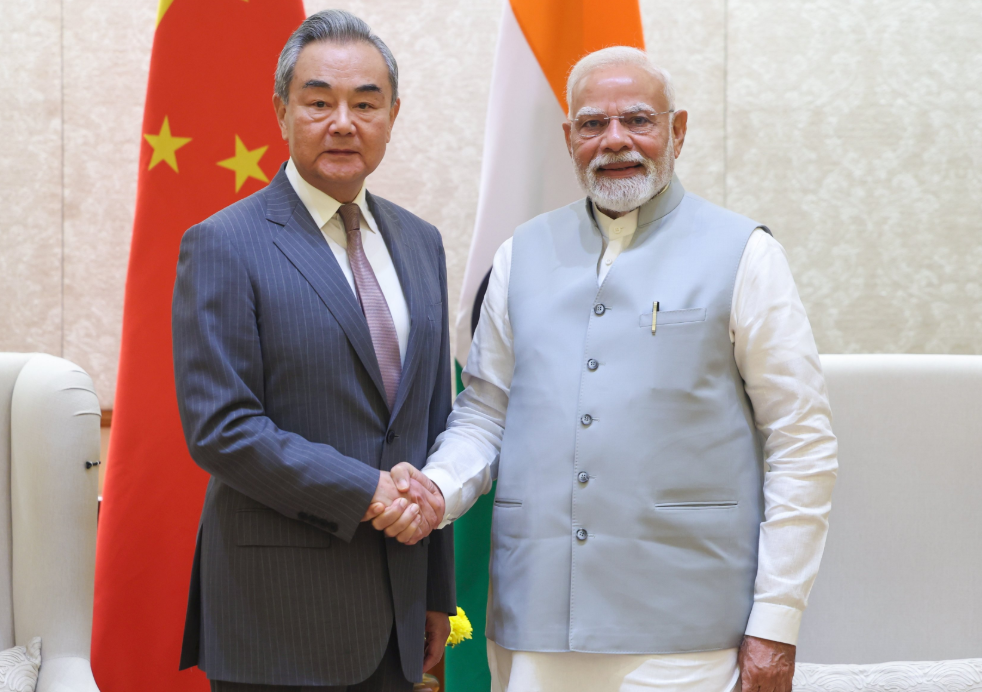
One of the biggest geopolitical developments of the day has emerged from India, following a major announcement by China. Beijing has lifted restrictions that had long hindered India’s industry and infrastructure projects. This includes the resumption of supplies of fertilizers, tunnel boring machines, and, most importantly, rare earth minerals and magnets. While this move is expected to give a strong boost to India’s economy and industry, the real impact will be felt in Washington, where U.S. policymakers are alarmed by this shift.
For several months, China had blocked the export of tunnel boring machines to India, causing delays in metro, highway, and major infrastructure projects. Alongside this, restrictions on rare earth minerals and magnets disrupted India’s electronics and defense industries. Rare earths are crucial components for manufacturing smartphones, laptops, electric vehicles, defense missile systems, solar panels, and wind turbines. India’s auto and electronics sectors had been raising red flags, warning of the serious consequences of these supply bottlenecks.
This week, during Chinese Foreign Minister Wang Yi’s visit to India, Beijing agreed to lift these hidden trade barriers. According to sources, Indian External Affairs Minister Ajay Shankar directly pressed China to remove these restrictions, making it clear that if Beijing truly wanted to normalize ties, it had to stop weaponizing trade and industrial supplies. China has now indicated its willingness to stabilize relations, recognizing that its Asian strategy would remain incomplete without India’s participation.
The development also comes at a time when the United States has taken a hard line against New Delhi. Recently, Washington imposed a steep 50% tariff on Indian goods, accusing India of financing Russia’s war by purchasing discounted oil. However, critics point out that both the U.S. and Europe continue to buy Russian energy and products in large quantities, while unfairly singling out India. Interestingly, China, which remains Russia’s largest partner, has not faced similar punitive measures from Washington.
By resuming rare earth and machinery exports to India, China has sent a powerful signal to the U.S.: if India and China move closer, Washington’s pressure tactics could lose effectiveness. This has rattled American policymakers, as rare earth minerals represent one of the most strategic resources in the 21st century. With nearly 90% of global rare earth production controlled by China, access to these minerals is a critical factor for any nation seeking to maintain technological and defense capabilities.
For India, the resumption of supplies is nothing short of a game changer. Without rare earths, the country’s technology sector, defense industry, and clean energy projects could face serious setbacks. Now, with access restored, India is better positioned to secure its industrial and strategic ambitions. Moreover, New Delhi is playing a careful balancing act: maintaining defense and technology partnerships with the U.S., ensuring energy security through affordable Russian oil, and reviving industrial growth through renewed trade with China.
This strategic maneuvering demonstrates India’s ability to use all three global powers—America, Russia, and China—to its advantage. It is a masterstroke of diplomacy and economic statecraft that has left Washington unsettled. If China continues to cooperate honestly with India, both nations stand to benefit significantly in trade, manufacturing, and technology. However, if Beijing reverts to its old pattern of coercion, India still has the option of deepening ties with the U.S. and Europe.
Ultimately, China’s decision to lift the ban on rare earth exports to India is not just a matter of trade—it represents the real power struggle of the 21st century. And in this geopolitical game, India has now emerged as one of the key players shaping the balance of power.
Disclaimer:
This article is based on current geopolitical developments and publicly available information. The analysis presented reflects the situation as reported at the time of writing. Readers are advised to follow official government statements and credible news sources for further updates. The content is intended for informational purposes only and does not constitute investment, political, or strategic advice.




